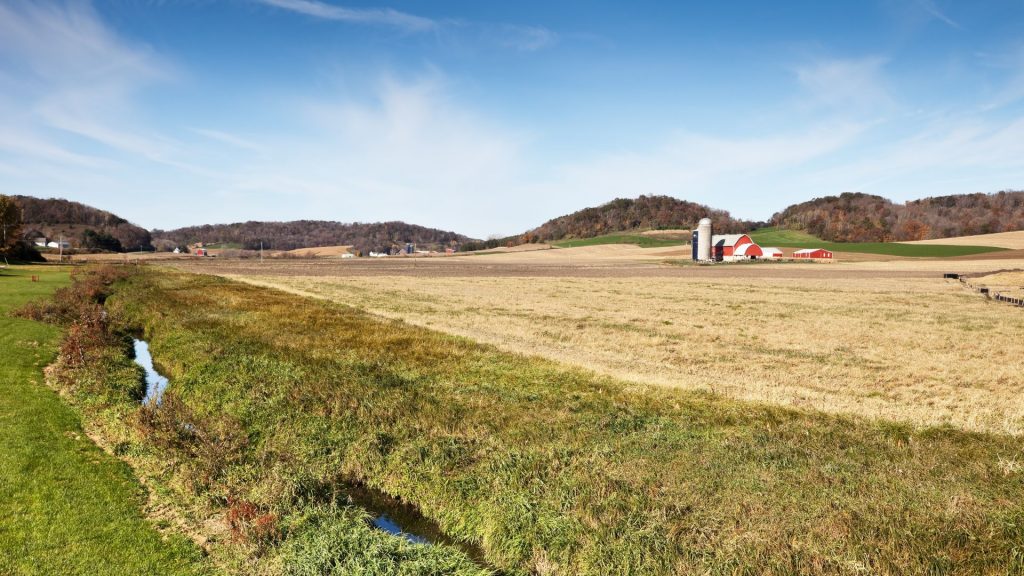Unconventional partnership proves agriculture and environmental organizations can be allies for clean water
Clean Wisconsin, in collaboration with the Dairy Business Association, The Nature Conservancy, and Wisconsin Land and Water, has achieved significant progress towards improving rural water quality. This unconventional coalition, known as the Clean Water Initiative, launched in 2021. The group spent the last four months lobbying the state’s budget-writing Joint Finance Committee on increased funding for conservation and water quality programs, administered by the Department of Agriculture, Trade, and Consumer Protection (DATCP) and the Department of Natural Resources (DNR). After the committee’s process played out and the dust settled, the coalition experienced some true success; proving agriculture and environmental organizations can be allies rather than adversaries.
Through a set of lengthy meetings in late 2022 and early 2023, the Clean Water Initiative developed a set of requests for funding through the state’s 2023-25 biennial budget. These requests represented common ground on several priorities from each organization. From increased funding for replacement of polluted private wells and expanding county conservation staff, to programs that incentivize farmers to implement new practices, the Clean Water Initiative’s budget package focused on promoting clean drinking water and resilient farms.
Each organization’s lobbyists then worked at the Capitol, week in and week out, for four months. The strategy focused first on lobbying members of the Joint Finance Committee, with particular attention paid to the twelve Republican members. The focus then shifted to members of both the Senate and Assembly committees on agriculture and environment. Working together, the lobbyists spent countless hours lobbying legislators and their staff—a concentrated and relentless push to achieve success.
In Madison, the state budget process is infamously grueling for advocacy organizations and their lobbyists. Organizations try as hard as they can to convince the two Republican co-chairs of the Joint Finance Committee for a piece of the finite budget pie. There are 782 registered lobbying organizations and 608 registered lobbyists in Madison. To be successful, organizations must break through the noise of endless priorities and requests from the other hundreds of organizations and lobbyists.
There are certain rules and required steps to achieve that success. One of those rules is that requests cannot come from advocacy organizations alone. Requests must be formally brought to the committee by members of the legislature through documents called budget motions. Without legislators fighting for an organization’s requests internally among their colleagues, that organization stands no chance of success.
Of the Clean Water Initiative’s nine budget requests, the coalition had at least one Republican legislator author a budget motion for each request. All nine requests were under legitimate consideration by the committee throughout the budget-writing process.
The committee voted on funding for programs administered by DATCP and DNR on May 18. Several priorities most important to Clean Wisconsin received increased funding.
The Nitrogen Optimization Grant Program received a twenty-percent increase in funding. This program provides funding to farmers for conducting on-farm research about commercial nitrogen and its effects on water quality.
The committee doubled funding for the Cover Crop Insurance Rebate Program. The program provides farmers with a $5 rebate on their crop insurance for each acre planted with cover crops. Planting cover crops stabilizes soil, mitigating run-off and water pollution.
The committee also created a new, ongoing $1 million appropriation for the Well Compensation Grant Program. This program helps qualifying landowners remediate or replace contaminated wells. While the program has received stable funding for several budget cycles, this new appropriation will help more landowners obtain safe drinking water.
While the Clean Water Initiative was hopeful other programs would receive increased funding, the committee held funding flat. However, the coalition will continue speaking with legislators on the importance and popularity of those programs in preparation for a renewed push in the next budget cycle.
The Clean Water Initiative’s successful efforts prove that there is more to gain through agriculture and environmental organizations working together than by working against each other. Time and again, Republican and Democratic legislators alike commended the coalition for its work. One prominent member of the Joint Finance Committee said, “I don’t know how you got this group together, but I hope you can keep it together.” That is certainly Clean Wisconsin’s intention.

